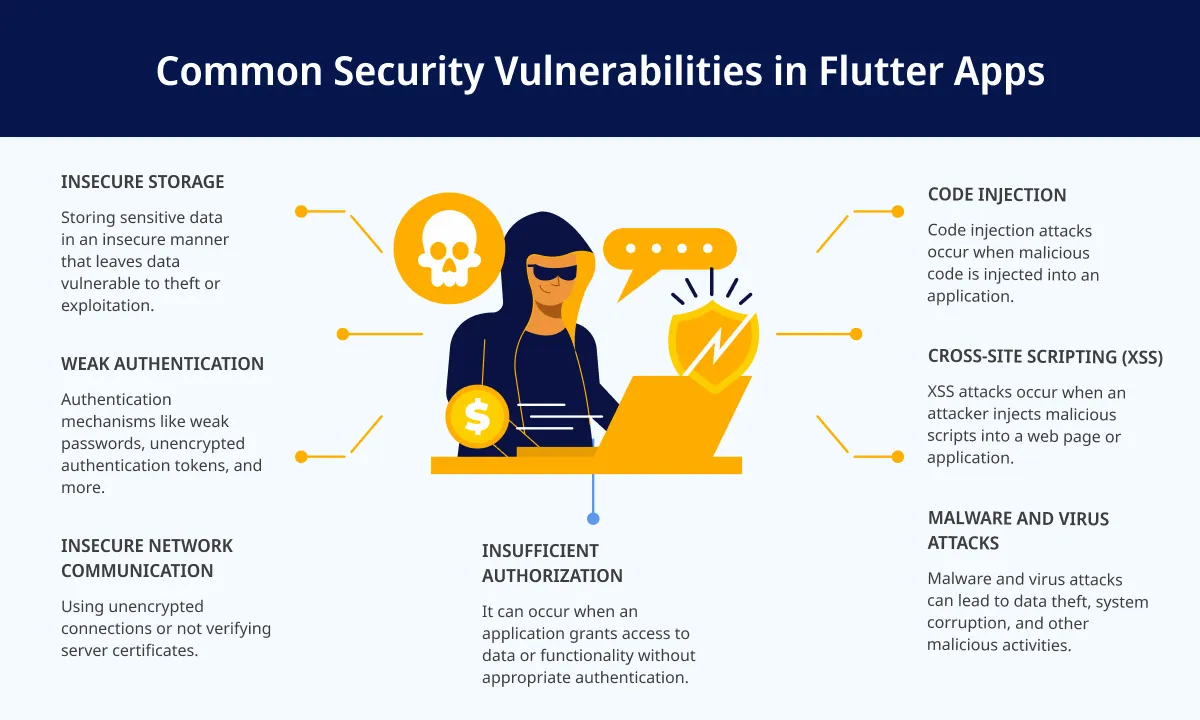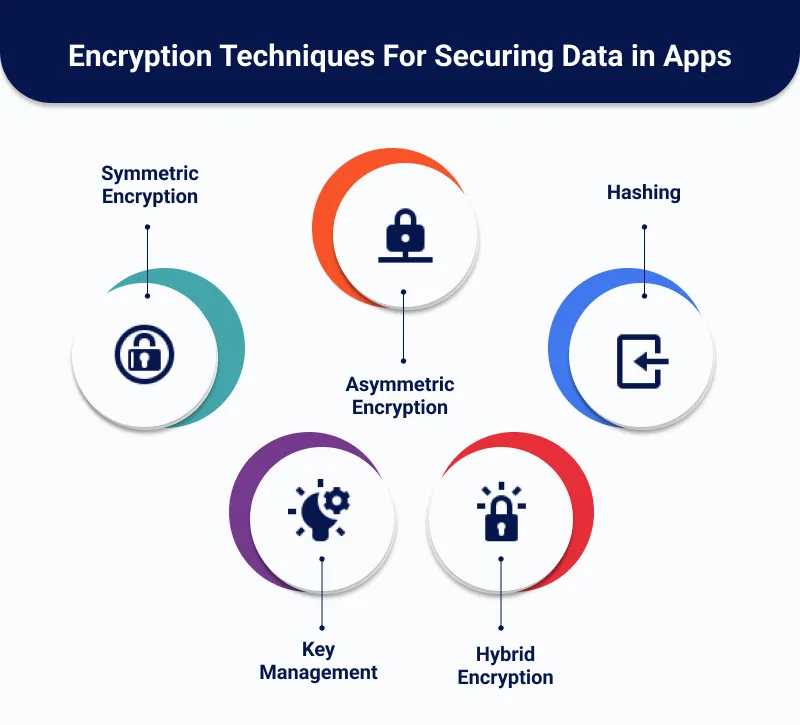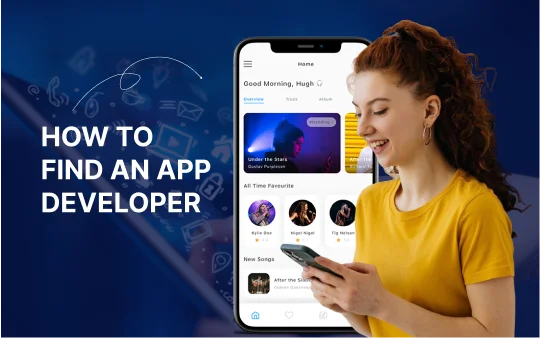Flutter is a famous mobile app development framework that enables programmers to deploy cross-platform apps. The popular framework offers a wide range of capabilities. However, this sometimes raises security concerns and leaves many asking, ‘How to secure the Flutter application and address these challenges?”
Don’t worry; we’ve got your back; this blog focuses on the top strategies for addressing the security concerns of the Flutter application. Continue reading the post to know more about flutter security.
Why Consider Application Security?
As technology advances, so does the nefarious practice of cybercrime. Thus, safeguarding applications has become an utmost priority in the digital landscape.
Here are some reasons why application security is important for your business:
- Compliance with the regulations: App security is crucial to comply with GDPR, HIPAA, and PCI DSS rules. These regulations require companies to take measures to ensure the safety of user data, and non-compliance can lead to significant fines and penalties.
- Protects user data: An application stores and processes sensitive user data like personal and financial or health information. If this data falls into the wrong hands, it can lead to unethical activities like identity theft, digital payment scams, etc. With app security measures, you can protect user data from fraud.
- Prevents financial loss: Security breaches often lead to financial losses due to lawsuits, penalties, and loss of business. To implement strong app security, consider having mobile app development services to strengthen your application.
- Maintains user trust: Security breaches tarnish a company’s reputation and lead to loss of user trust. By ensuring your application security, you can reassure users that their data is secure and their privacy is respected.
Consult with us for strategies to address and fortify Flutter app security.
Strategies to Tackle Security Concerns
As the Flutter ecosystem grows, so does the need to be aware of the security threats inherent in the platform. So, let’s look at some of the best strategies to secure your Flutter application.
Secure Code Practices
Writing secure code is one of the most critical aspects of Flutter app development. To secure your Flutter app, there are some key security principles you should follow:
- Write code cautiously and understand the implications of each line of code you write.
- Make sure all dependencies and third-party libraries are updated with the latest versions.
- Use security design patterns such as authentication and authorization.
- Implement code obfuscation or renaming variables to make it difficult for attackers to gain access to the code.
- Monitor your application’s output and use log analysis tools to detect suspicious behavior.
- Follow Flutter best practices when coding. Use type-safe language like Kotlin for Android apps, Swift for iOS apps, and Rust for Web Assembly apps.
Also Read: Flutter Vs React Native: Which Is The Best One For Mobile App Development?
Authentication & Authorization
With the help of front-end development services, you can implement authentication & authorization protocols in the Flutter application to ensure that only authorized users can access sensitive data or features.
Authentication is the process of verifying the identity of a user. The most common methods are basic authentication, token-based authentication, and OAuth 2.0. Authorization is granting access to resources based on the user’s authentication credentials. Here are some other ways to secure your Flutter application:
- Use a trusted authentication system: You can consider using systems that have already been built & tested, such as Firebase Authentication. This will ensure it’s easy for users to log in and safe from hackers.
- Control who can do what: To ensure that the person assigned to a task can perform it, you can use role-based access control. This helps prevent anyone from doing things they shouldn’t, whether accidentally or intentionally.
- Make sure it’s safe to talk to the server: When your app talks to the server, it uses HTTPS so that no one can listen in on the conversation and steal information.
- Keep track: Use JSON Web Tokens (JWTs) to track who can do what. This makes knowing who can do something easier without always asking the server.
- Protect crucial information: Ensure that things like passwords & special keys are stored in a safe way using suitable encryption methods.
- Restrict unauthorized access: Use rate limiting to make it harder for hackers to try many different passwords until they find the right one.
Data Encryption
Whether it’s a mobile app or a web app, encryption is a crucial security strategy for any platform. It protects users’ data by making it unreadable to unauthorized people. In the context of a Flutter app, data encryption can protect sensitive data, such as user passwords or API keys, stored on the client or server side.
By using Flutter apps’ most common encryption algorithms, such as Advanced Encryption Standard (AES) or RSA, you can ensure that the data is effectively protected from unauthorized access.
Don’t forget to consider the security of your keys, as they are responsible for encrypting and decrypting data. They should store securely and not share all encryption keys with anyone else
Data encryption is a crucial measure for app security. You can protect data from possible threats by utilizing encryption libraries, implementing encryption algorithms directly, or using secure storage options provided by the platform.
It is imperative to take these precautions to maintain the integrity and confidentiality of sensitive information.
Lastly, regularly update your encryption methods as new technologies become available. You can also hire front-end development services for your Flutter web apps or mobile to ensure the best app results.
Secure Storage of Sensitive Data
The secure storage of sensitive data is paramount for your Flutter application. Anytime data is transmitted or stored, confirm it’s properly encrypted and secured to prevent unauthorized access or theft.
A great way to achieve this is to use Flutter Encrypt, a plugin for Flutter apps that allows developers to encrypt and securely store sensitive data easily. By utilizing this plugin; you can be certain that there will be no malicious entities can access the sensitive data stored within our clients’ apps.
Also, this method can be used with other technologies, such as Firebase and Auth0, to provide an extra layer of security. With the proper techniques, you can ensure your users’ information will remain safe & secure.
If you plan to develop a native cross-platform app, Flutter Flow will be perfect for your project. Also, several companies like ValueCoders offer custom web development services, so you can decide which best suits your requirements.
Improve your app's security and performance with our expert coding practices.
Obfuscation & Code Minification
Obfuscation and code minification can provide additional layers of security to your Flutter app. Obfuscation is the process of making code difficult to comprehend and reverse engineer. Code minification is a process of removing unnecessary code or data from a program so that it runs faster.
Obfuscation is a great way to protect your source code from reverse engineering, which can be used to exploit your system. It helps by making it difficult for hackers to understand the code’s purpose and structure, as well as its inputs and outputs. This makes it more challenging for a hacker to access your system.
Code minification is also beneficial for security, as it reduces the size of the code, making it more difficult for attackers to read and decipher. In addition, code minification can help make your code run faster by reducing the amount of data that needs to be processed by the machine.
Using obfuscation and code minification together can provide a strong layer of security for your Flutter Web Apps, Flutter Flow, and mobile app development services. They are essential for any security strategy, as they can help make your code more secure and protect your system from malicious actors.
Also Read: Why Choose Flutter For Cross Platform Mobile App Development?
Regular Security Updates and Bug Fixes
Keeping your Flutter app secure means staying on top of security updates and bug fixes. Security updates should be released regularly to ensure your Flutter app is secure. This can be done by following the Flutter Flow – the best practices for releasing and maintaining an app.
Updating your app regularly with new features, bug fixes, and security updates will help protect against hackers. The Flutter Flow also helps you to identify any security risks or vulnerabilities in your app and apply the necessary fixes.
To make your app secure, monitoring it regularly and keeping up with the latest Flutter best practices is recommended. This involves checking for any new security updates and bug fixes that must be enforced to keep your app secure. You can ensure your app runs optimally and securely by staying updated with the latest security updates.
Partner with us for foolproof encryption and secure storage.
Third-Party Libraries Dependencies
When using Flutter for creating mobile apps, it’s essential to know that third-party libraries may pose security risks. These libraries can introduce malicious code into your app, intentionally or by mistake. That’s why it’s crucial to know the risks and take measures to reduce them.
One of the great ways to ensure your app is secure is to hire a dedicated team of software developers with Flutter experience. They can help you identify potential security risks with third-party libraries and advise minimizing them.
Also, they can check your code for security issues, ensuring you follow the best practices for integrating third-party libraries in your app.
It’s important to always check the source code of any library before adding it to your app. This way, you can detect any problems before they threaten your app.
Developers should keep updated with the latest changes or updates to their libraries and ensure they are the latest. This helps protect the app from known vulnerabilities in outdated libraries.
By taking these precautions, you can make sure your app is secure while still using the benefits provided by third-party libraries. So, mitigate the risks posed by third-party libraries when securing your Flutter app. Hiring a dedicated software development team is a great way to do this.
Bottom Line
Security should be a top priority of your Flutter app. While there are plenty of strategies to ensure security, it is essential to always be up-to-date with the latest security trends and best practices. These strategies will help you secure, authenticate, authorize, encrypt, and obfuscate your application.
ValueCoders has been providing mobile app development services for over 18 years globally. Our experts can support your business with the Flutter app development services; you can reach our consultants and explore the possibilities.







